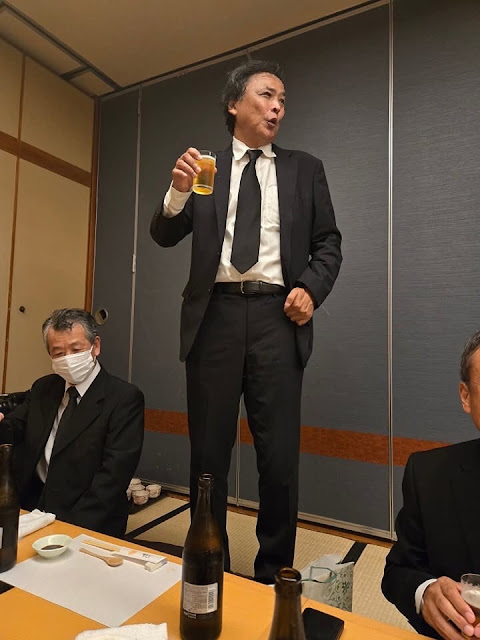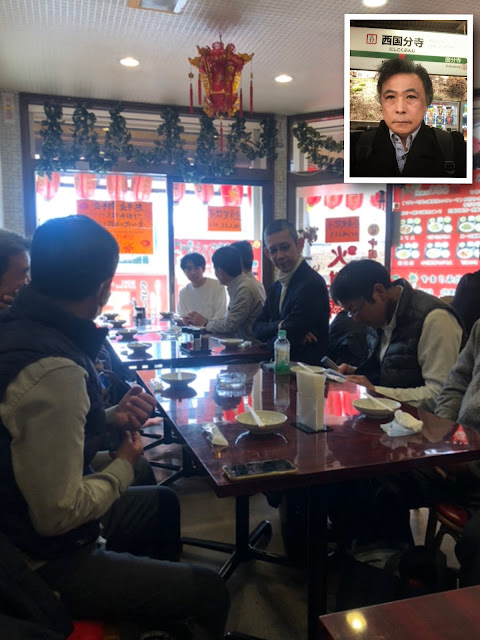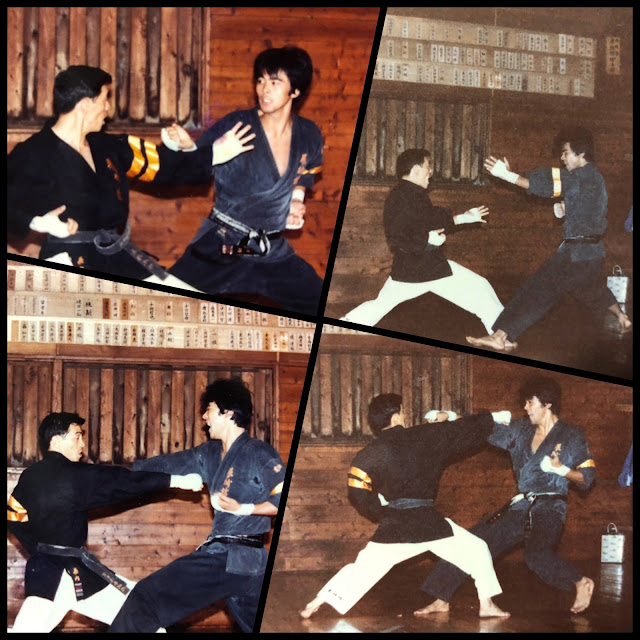September 15, 2024: The 30th-anniversary memorial service in Tokyo for Master Wataru Okawa, the founder of Kenseikan Karate
September 15, 2024: Attended the 30th-anniversary memorial service in Tokyo for Master Wataru Okawa (大川渉師範), the founder of Kenseikan (拳誠館) Karate, where I had an unexpected reunion with Mr. Nandana Wijewardana, who runs a dojo and teaches karate in Canada. I was also able to reconnect with many others I had missed, and together we fondly remembered Master Okawa. I was greatly inspired to learn that those who learned karate from Master Okawa during their student days are now thriving in various industries.
< May 2014 in Canada >
October 10, 1981: Celebration following a karate demonstration at the Wakei Juku dojo in 1981. Over 60 university students were practicing karate under the guidance of Master Okawa.
< Concept of 「空(Kuu)」in Karate Training >
***** Letter to Mr. Nandana Wijewardana *****
October 28, 2024
Dear Nandana,
I am writing this letter to explain the concept of「空」based on my experience, upon a request from Mrs. Okawa.
When translating 「空の思想に徹すること」into English, I believe the following expression might be appropriate. Since the concept of 「空」cannot be adequately explained by English words like "empty," it seems suitable to retain it as "Kuu."
“Penetrate deeply into the Zen Buddhist philosophy of 「空(Kuu)」”
However, I am afraid that children and students at your dojo in Canada might not grasp its meaning as it stands. Therefore, it is essential for you, as part of your personal teaching philosophy, to continuously explain and enlighten your students about its true essence through daily practice.
Based on my understanding of “Kuu” which stems from my own experiences, I will share my thoughts below in the hope they might serve as some reference for you.
“Kuu” is central to Zen teachings and is regarded as a path to freedom from self and attachments. However, what we were taught in karate practice was a mental state of complete immersion – striking, kicking, or practicing kata to such an extent that we lose ourselves, even our sense of time. Without this, there can be no mastery in karate. Our teacher, Master Okawa, taught us that this state of being "in the zone," although temporary, is a momentary experience of "Kuu" in Zen. I understand that the children and students at your dojo are excelling in various karate tournaments in Canada, but what is even more important is that, as they become adults, they internalize the fundamental ability to lose themselves and deeply focus on the present moment to the extent of losing their sense of time, enabling them to perform at high levels and exhibit creativity when tackling challenges in their respective careers. In Zen, the ideal is to experience "Kuu" not only temporarily but throughout one’s life. However, I keenly feel that such a state is challenging to achieve for an ordinary person like myself.
At its core, "Kuu" is not something to be understood through words; rather, it is something that should be realized through the practice of karate and refined in one’s own professional endeavors after stepping out into society. Each student, therefore, will find their own understanding of it. I myself did not come to strongly recognize its importance until quite some time after graduating. I am convinced that “Kensei-Kun“ was not merely karate instruction but rather a guiding principle for fostering leaders in various fields of society through the daily practice of karate.
Best regards,
Tetsuya Sogo
February 16, 2025: After visiting the grave of my esteemed senior, Shihan-dai Osanai, I attended a Kenseikan luncheon at a Chinese restaurant in front of Higashi-Tokorozawa Station. However, I had to leave partway through to return to Osaka.
1980 Kenseikan Karate Spring Training Camp (A photo taken with Osanai-senpai with Mount Fuji in the background)
Kenseikan Karate was featured in the 1980 Autumn edition of Obunsha's Keisetsu Jidai magazine (pictured here is a sparring session with Osanai-senpai)
1981 Kenseikan Karate Sumner Training Camp (Osanai 4Dan / Sogo 2Dan)
October 10, 1981: Kenseikan Karate Demonstration (Osanai 4Dan / Sogo 3Dan)
< October 1981 >
< October 1980 >
< April 1980 >



















































Comments
Post a Comment